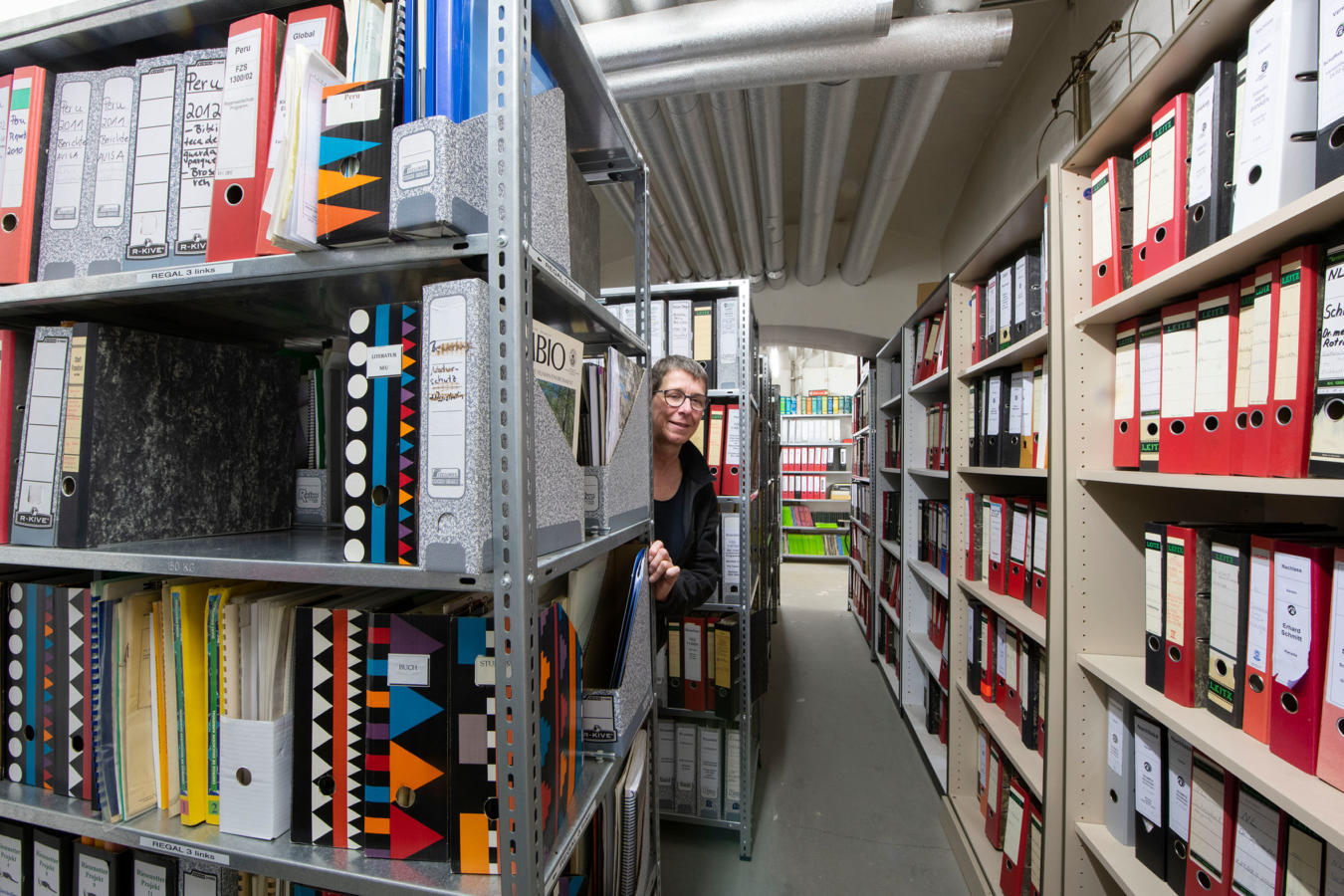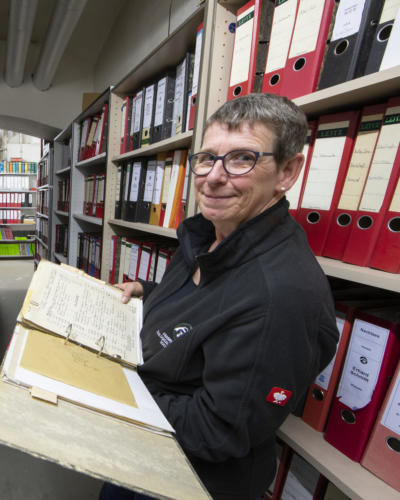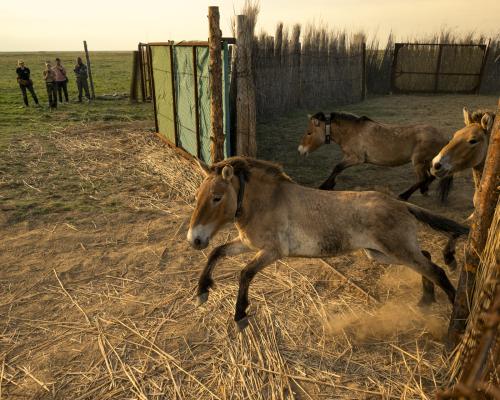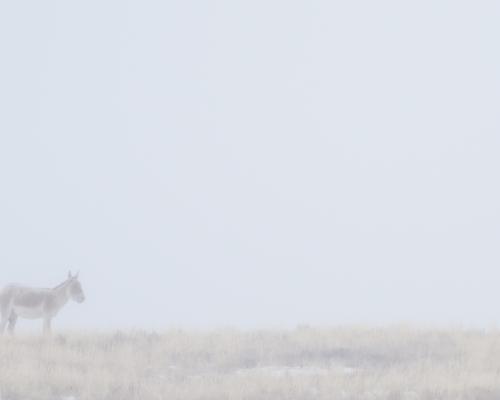The world is becoming ever more digital and so are files and documents. Yet, in the basement of the Zoogesellschaftshaus, the building that houses FZS’s offices, countless old paper documents lie dormant. Lucky for us, as they tell the history of our organization and provide insights into nature conservation work from the 1960s to 90s. Back when we still exchanged letters, telexes and telegram.

In the Paper Ecosystem
Since February 2022, Sabina Potthoff, who has been with FZS for over 20 years, has been working to establish an FZS archive. What started off as “cleaning up the basement” is growing into an ambitious project to review and preserve FZS history as well as a lot of knowledge about nature conservation.
A historical archive can also help deal with current challenges. The disputes around land use rights in the Serengeti ecosystem are just one example. Allegedly, FZS’s former president Bernhard Grzimek was involved in evicting Massai from their ancestral settlement lands in the Serengeti. Are these accusations justified? Are there documents that prove this? Are there old project files that show to what extent Bernhard Grzimek or FZS were actually involved in defining the boundaries of the national park? Being able to answer such questions with the help of historical source documents is very valuable for putting today’s events in a historical context.
Unfortunately, we are not quite there yet. Despite hundreds of files from the 1960s to today, a strategic search for topics or time periods is not possible yet. Our basement is home to an estimated 1,900 files with no systematic order. This is about to change: in order to make this historical treasure available both to ourselves and to external researchers, Sabina Potthoff is working to develop a proper archive.

Especially the files from the 60s are super interesting. Communication worked differently then and seems strange today. Letters were sent that took weeks to reach their destination.
Sabina Potthoff: First, I acquired some theoretical expertise by reading a lot about the matter, then I took a course in basic archiving at an archiving school in Marburg, Germany. There I learned the groundworks, but more from a public archive perspective, like a communal archive for example. Therefore, I also took part in a workshop by the Association of German Business Archivists (Verband der Deutschen Wirtschaftsarchivarinnen und -archivare). Their focus is more on corporate archives. As a small private archive, we have to deal with similar questions as company archives.
We are still very much at the beginning. Right now, I focus on the preservation of the inventory items, which means I try to secure our files. This involves a lot of manual work like putting documents in archive-safe boxes, dry-cleaning smudged or dirty paper and – very time-consuming – removing all paper clips and staples. Since communication in the 60s and 70s was almost exclusively done by mail, many documents consist of very thin airmail or carbon copy paper.
But you don’t keep everything, do you? How do you decide what is important and what can be thrown away?
Before archive material is integrated into a historical archive it gets evaluated. In our case it is quite clear, however, that we will keep almost all the documents we find in our basement. But we must develop guidelines for the future to determine which documents to keep long-term. Space is an issue. We develop these guidelines together with the departments so comprehensible decisions can be taken.
It is very important to create an archive structure, the so-called archive tectonics, and finding aids, as recorded inventories are called. I’ve been working for FZS for many years, and it helps me a lot to know about its organizational structures. FZS’s archival records are sorted in different inventories and then recorded.
The record is a short description of a file containing all necessary information, like duration, title, a short summary of the content and information about special features that may be included, for example photos, maps or plans, contracts, etc.
If someone wants to conduct research about nature conservation, can he or she find documents in the FZS archive?
Our archive materials will be listed in an online archive system. We will use a system called Arcinsys which is used in the federal state of Hesse for public archives. It’s a web-based database. Our inventory can then be searched by interested users. But this will still take a while because as of now the FZS archive is a one-woman-show.
No, that’s not the case. The finding aids only show the description of an archival document. Only if we provide digitalized documents online could those be read. But digitalizing is a huge effort, very expensive and not relevant for us at this point in time.
Yes, but no matter if digitalized or not, we need to consider legal matters with every archival item, for example if personal rights might be violated by the release of a file. In order to ensure transparency and security in the handling of our documents, the FZS archive will follow the Hessian Archives Act and comply with the corresponding protection periods.
Especially the files from the 60s are super interesting. Communication worked differently then and seems strange today. Letters were sent that took weeks to reach their destination. I found a written request which was sent by mail from Frankfurt to National Geographic in New York to ask for Dian Fossey’s address in Rwanda. Two weeks later we received a reply from the USA. Only then could we write to Dian Fossey. But how long it took that letter to reach her in Rwanda I cannot say.
What is more, there are numerous reports from projects that allow insights into contemporary history. One such report from the late 70s I found in February 2022, just after the escalation of the war in Ukraine. It describes the effects of Idi Amin’s war in Uganda on the protected areas – a sad parallel.











